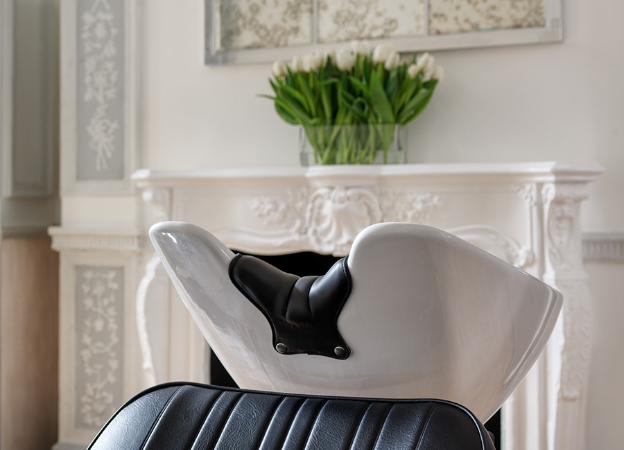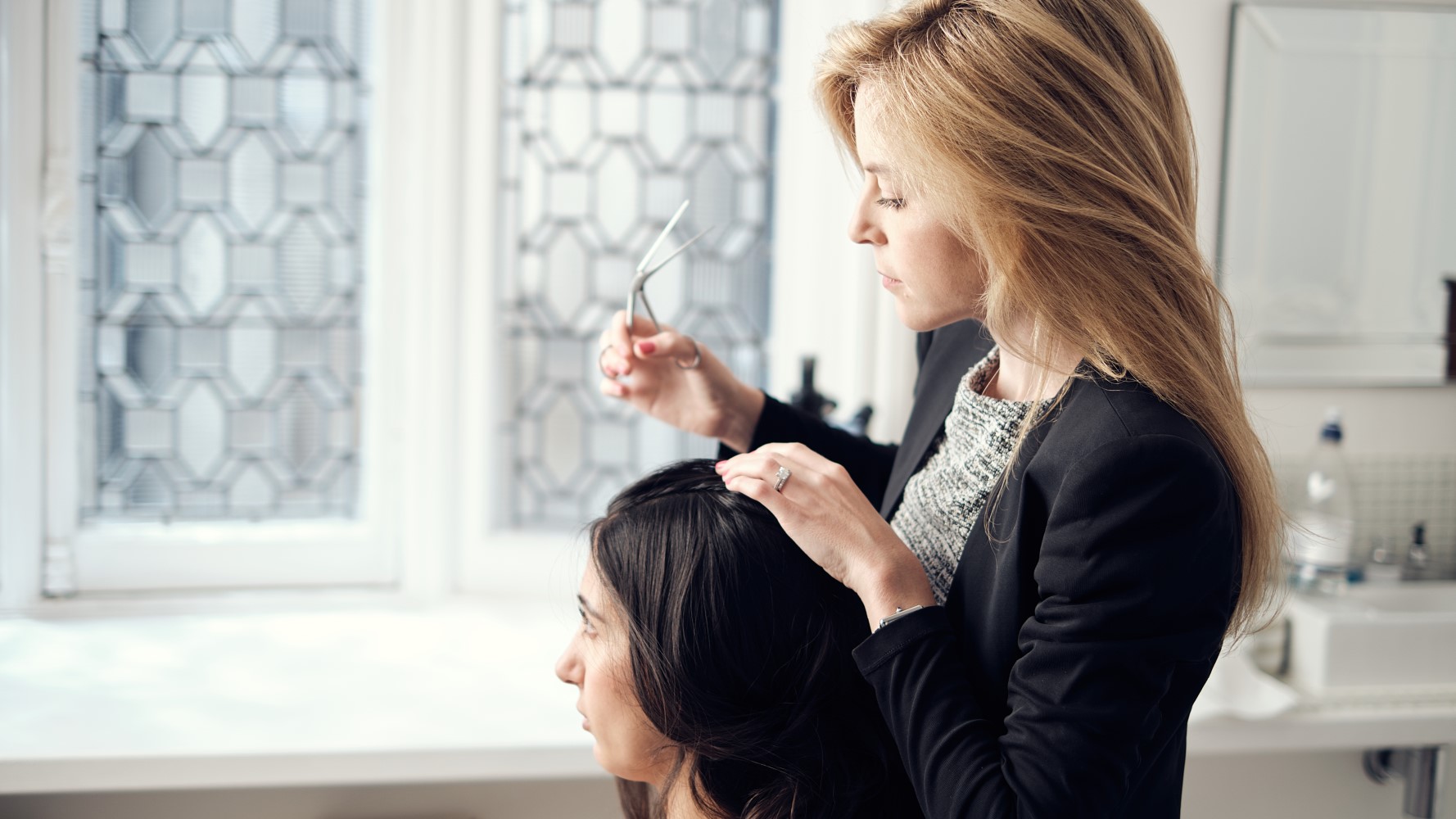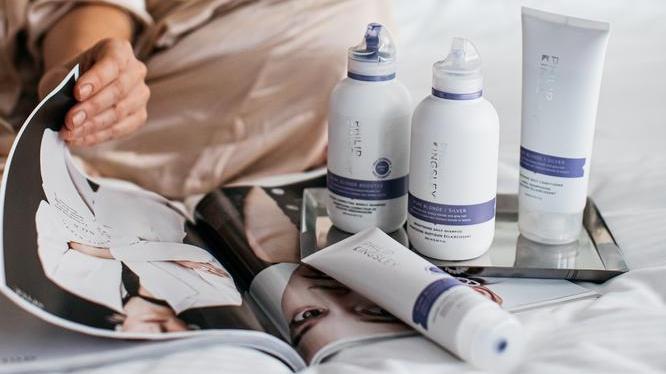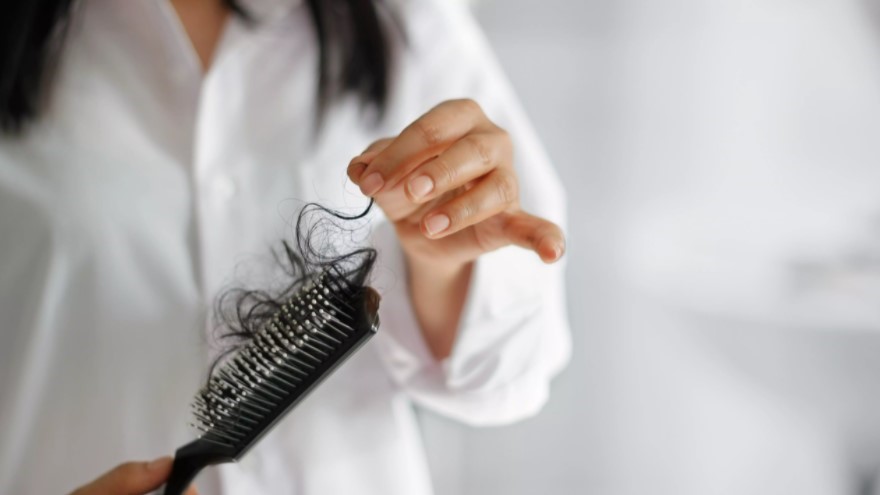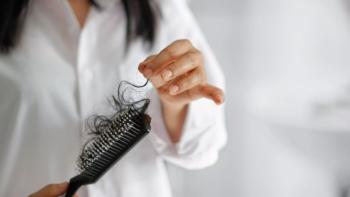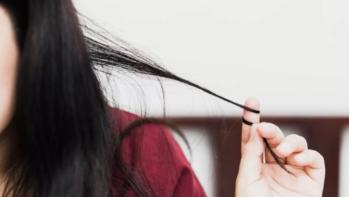Can Stress Cause Hair Loss?
Our bodies are a network of interconnected systems, meaning very few events relating to our health happen to us in isolation. Many types of stress start out in the mind, then go on to immensely affect our physical wellbeing.
This is certainly true of our hair — and it is why we take a holistic approach to hair care. Stress results in hair loss far more frequently than most people realise, and we consider stress management a crucial part of most treatment plans. Of course, hair loss itself can be stressful, which may then perpetuate the problem.
Types of stress related hair loss include:
- Telogen Effluvium (excessive daily hair shedding)
- Alopecia Areata (hair loss in areas)
- Trichotillomania (hair pulling)
- Androgenic Alopecia (hair thinning)
It is important to note that stress will usually not cause hair loss straight away. Most hair loss you experience will present itself anywhere between 6-12 weeks after a stressful event, due to the nature of the hair growth cycle.
Stress and Telogen Effluvium
Telogen Effluvium is a form of diffuse (widespread, non-concentrated) hair loss on your scalp. It occurs when the anagen (growth) phase of the hair growth cycle is cut short by an internal disturbance in your body. This causes many more hairs than usual to move from their anagen phase into their telogen (resting) phase, resulting in excessive daily hair fall around three months later. On average, it is normal to lose up to 100 hairs a day, but postpartum shedding can result in as many as 400 hairs being shed in a 24-hour period.
Why does stress cause hair loss?
Stress is one of the most common causes of Telogen Effluvium. This is because when we are stressed, we often do not look after ourselves as well as we should do. For instance, we may skip meals or eat more processed foods than usual – which, despite their convenience, have very little nutritional benefit. Stress also impacts digestion and your body’s absorption of vital nutrients.
What’s more, hair is a non-essential tissue, so it is often the first thing to suffer if your body is lacking in nutrients. Vitamin imbalances, iron deficiency, inadequate protein intake, and meals that contain too few calories, can all contribute to hair shedding.
Furthermore, stress affects our immune system, making us more susceptible to illness. Illnesses like the flu, high fevers and systemic upsets often trigger hair loss. For more information about diffuse hair shedding, please visit our section on Telogen Effluvium.
Stress and Alopecia Areata
Alopecia areata (‘hair loss in areas’) is a condition that causes specific patches of hair loss to appear randomly on your scalp. These are usually circular in shape and roughly the size of a coin, although they can also be larger.
Alopecia areata is widely accepted to be an autoimmune disorder, where your body sees certain hair cells as foreign enemies and attacks them. What triggers this response is not entirely understood, but 90% of cases are associated with stress, shock, bereavement, illness, or an accident. For more information, please read our section on Alopecia Areata.
Stress and Trichotillomania
Trichotillomania — also known as hair pulling disorder — is a form of hair loss caused by an irresistible urge to pull out your hair, either from your scalp or any other part of your body. It can result in small or large thin and bald patches, and is often extremely distressing for those who suffer from it.
The causes of trichotillomania are psychological and often complex. Stress is a major contributing factor, as is anxiety, depression, or a traumatic experience. For more information on hair pulling disorder, please visit our section on Trichotillomania.
Stress and Androgenic Alopecia
Hair thinning in both women and men is genetic and can be inherited from either parent. It is caused by a sensitivity in your hair follicles to both testosterone, and a hormone converted from testosterone called dihydrotestosterone (DHT).
If you have inherited follicle sensitivity, it will be triggered at some point after puberty (the stage at which your body starts to produce testosterone). Once the sensitivity is triggered, your hair follicles will gradually miniaturise and the hair will grow back thinner over the years, reducing the volume and length of your hair, and making your scalp more visible.
Stress and anxiety can significantly intensify the effects of this type of hair loss. One of the main reasons behind this is that stress often increases your body’s production of the stress hormone cortisol, which in turn can raise your body’s levels of testosterone. Stress may also increase the sensitivity of your follicles to circulating androgens (male hormones).
For more information on androgenic alopecia, please visit our sections on Male Pattern Hair Loss and Female Pattern Hair Loss.
How to Treat Stress-Related Hair Loss
Generally, the best way to improve stress induced hair loss (for both males and females) is to indulge in ways of managing and reducing your stress and anxiety levels. We realise this can be a challenging ask, especially in today’s busy world, but it is one of the most important ways to combat it. Remember, a balanced state of mind is beneficial for all aspects of your health. At Philip Kingsley, our holistic approach to hair care means we consider stress management an integral part of most hair loss treatment plans.
At the Philip Kingsley Clinics, our expert Trichologists meet many Clients suffering from stress-related hair loss. We often recommend — and see good success rates as a result from — the following techniques:
- Yoga
- Pilates
- Meditation
- Mindfulness (either taking classes or downloading an app)
- Cognitive Behavioural Therapy (CBT)
- Exercise such as swimming and/or jogging
- Walking
- You may also want to talk to your doctor about alternative treatments, such as acupuncture
In terms of diet, we recommend you do not skip meals. Try to eat at regular intervals, with healthy snacks in between as necessary. Well-formulated nutritional supplements can also be very helpful, by providing your body with a boost of essential vitamins and minerals. These may also aid in immune system function.


